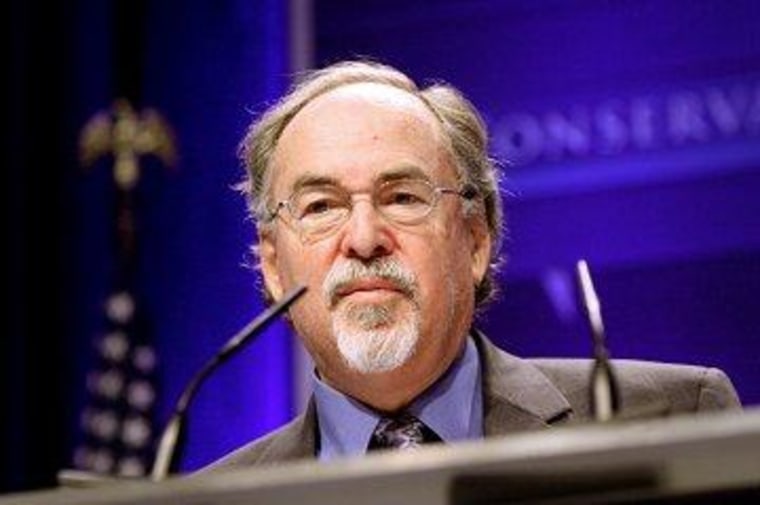There are fringe radicals on far-right and the far-left of American political thought, but I've long believed there's an important difference when it comes to their greater influence -- the Democratic mainstream keeps the far-left at arm's length, while the Republican mainstream links arms with the far-right. Take David Horowitz, for example, whose name seems to keep popping up.
Horowitz is one of the nation's most abrasive anti-Muslim activists, a notorious conspiracy theorist who's dabbled in some ugly racial politics, and someone who believes political correctness will lead to a "totalitarian future." He's also written books with titles like "Hating Whitey and Other Progressive Causes."
And yet, in April, Horowitz spoke at a Republican National Committee event intended to help the party broaden its electoral appeal. No, seriously. Last month, Donald Rumsfeld stood alongside Horowitz when the former Pentagon chief questioned which side of the "war on terror" President Obama is on.
And this morning, Mother Jones' David Corn, with some research help from James Carter, reports on a February event in which Sen. Jeff Sessions (R-Ala.) praised Horowitz and touted his influence among some Senate Republicans.
On the surface, Sessions' comments seemed relatively benign. But the senator was embracing a depiction of Obama in which Horowitz presents him as a lying and conniving radical who will do or say anything to amass more power and assert authoritarian control over the United States.The last chapter of Horowitz's 2012 book, Radicals: Portraits of a Destructive Passion -- which prompted Sessions' eureka moment -- is entitled, "A Radical Machiavelli," and it opens with a quote from Obama: "We are five days away from fundamentally transforming the United States of America." In this chapter, Horowitz attempts to explain the progressive mindset. The key to understanding these folks and their ultimate aims, Horowitz contends, is Saul Alinsky, the legendary organizer. His influence, Horowitz notes, has extended to Obama and "captured the heart of the Democratic Party."
As Corn describes it, Horowitz's latest book views the president -- and indeed, everyone on the American left -- as hell bent on destroying American society and creating a totalitarian state. A sitting U.S. senator praised the book, said the most offensive chapter in it gave him an "epiphany" about the president, and boasted at a Horowitz event that the right-wing provocateur "will make a difference" in how some Senate Republicans "approach things."
I'm tempted to ask how the political world would react if a sitting Democratic senator was equally cozy with a left-wing radical, but I'm having trouble even imagining it -- there really aren't any comparable liberal versions of Horowitz, and if there were, Senate Dems would want nothing to do with him or her.
So why is it, exactly, that Horowitz is palling around the Sessions, Rumsfeld, and RNC members?
